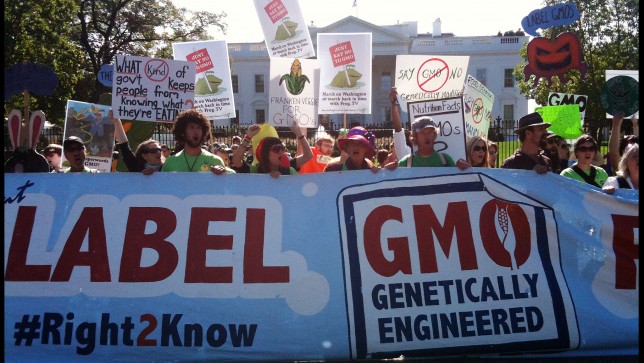A new analysis commissioned by Consumers Union, the policy arm of Consumer Reports, and conducted by the independent Portland-based economic research firm, ECONorthwest, found from a review of published research that the median cost to consumers of requiring labeling of genetically engineered food, also known as genetically modified (or GMO) food, is $2.30 per person annually. The report is available online now here.

“That’s less than a penny a day for each consumer — a tiny fraction of the cost estimates put out by industry and certainly a very small price to pay for consumers’ right to know if their food has been genetically engineered,” said Jean Halloran, Director of Food Policy Initiatives at Consumers Union.
Consumers Union strongly supports Oregon’s GMO labeling ballot initiative, Measure 92. “Given the minimal cost to consumers, the increased herbicide use involved in growing almost all genetically engineered crops, as well as the failure of government to require human safety assessments before genetically engineered foods reach the marketplace, GMO labeling is well worth it,” Halloran said. “Companies change their labeling all the time and with GMO labeling costing so little, it is likely some producers won’t even bother to pass the minimal increase on to consumers.”
Consumers Union disputes claims made in ads opposing Measure 92 that labeling will force farmers and food producers to spend “millions” and increase food costs for consumers. The group also takes issue with the assumptions made by industry-funded studies that it says have overestimated the cost of similar GMO labeling proposals in California, Washington and New York—putting the cost at $100-$200 annually (or $400-$800 for a family of four).
“Industry cost estimates incorporate unrealistic assumptions about how GMO labeling requirements will drive food producers to switch to all organic ingredients, which would be much more expensive. However, there is no factual basis for this assumption and we believe producers will continue to sell GMO foods once they are labeled, and many consumers will continue to buy them, with no discernible price impact,” asserted Halloran. “Measure 92 simply requires foods that contain genetically engineered ingredients to be labeled so that consumers can make an informed choice.”
Genetically engineered foods are already required to be labeled in 64 foreign countries, including many where American food producers sell their wares. Labeling has not increased food prices in those countries, according to Consumers Union.
“Producers are required to label foods that are frozen, from concentrate, homogenized, or irradiated, as well as a food’s country of origin. Poll after poll has found that more than 90 percent of consumers want foods that are genetically engineered to be labeled,” said Halloran.
In addition to the Oregon initiative, a GMO labeling requirement is on the ballot in Colorado in November. Vermont has already passed legislation requiring GMO labeling, and legislatures in dozens of other states are considering similar labeling bills.



















Food that sickens one is stealth warfare–class warfare. GMO labeling is more like prop.65 in Cal. Use any poison you want –just print that you are doing so.Your daddy and mommy substitutes are murderers and you know it and keep on running toward the goal posts.